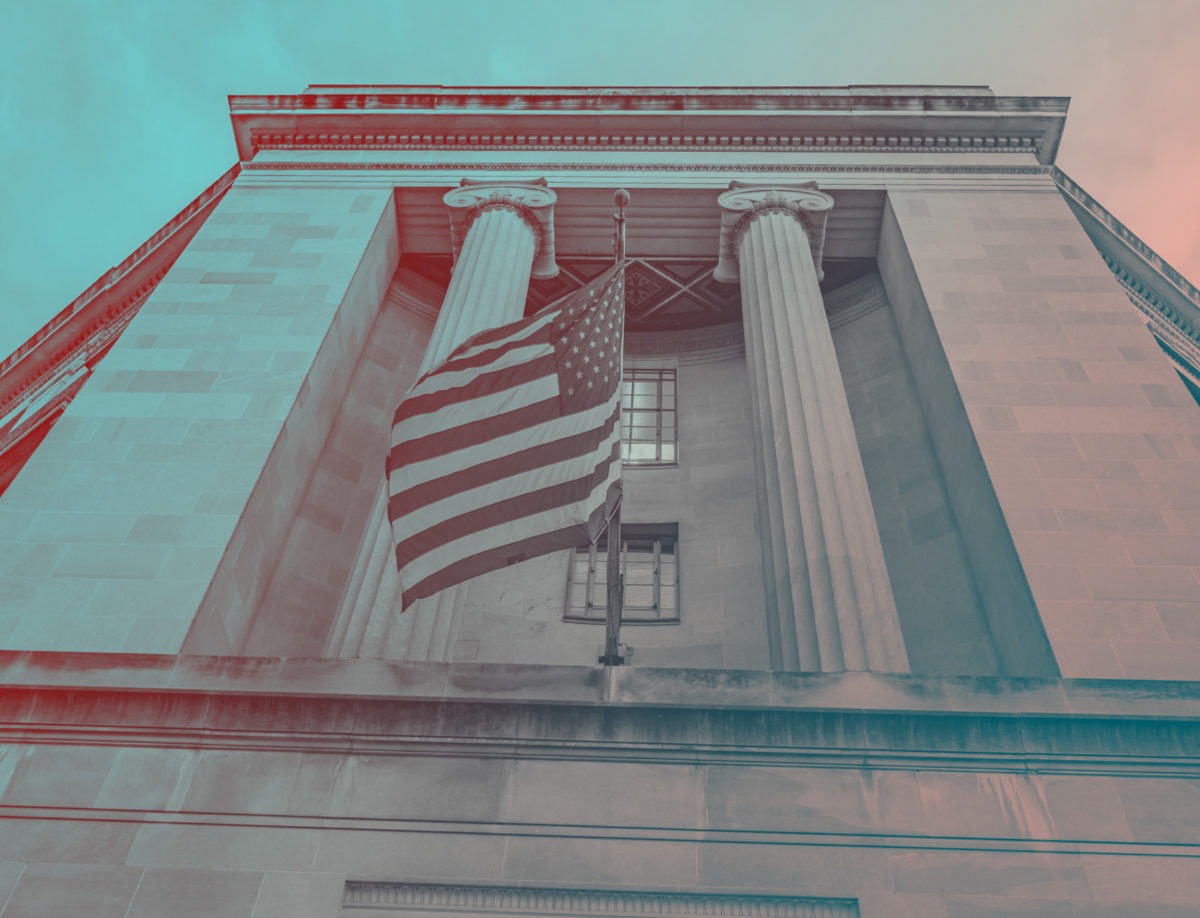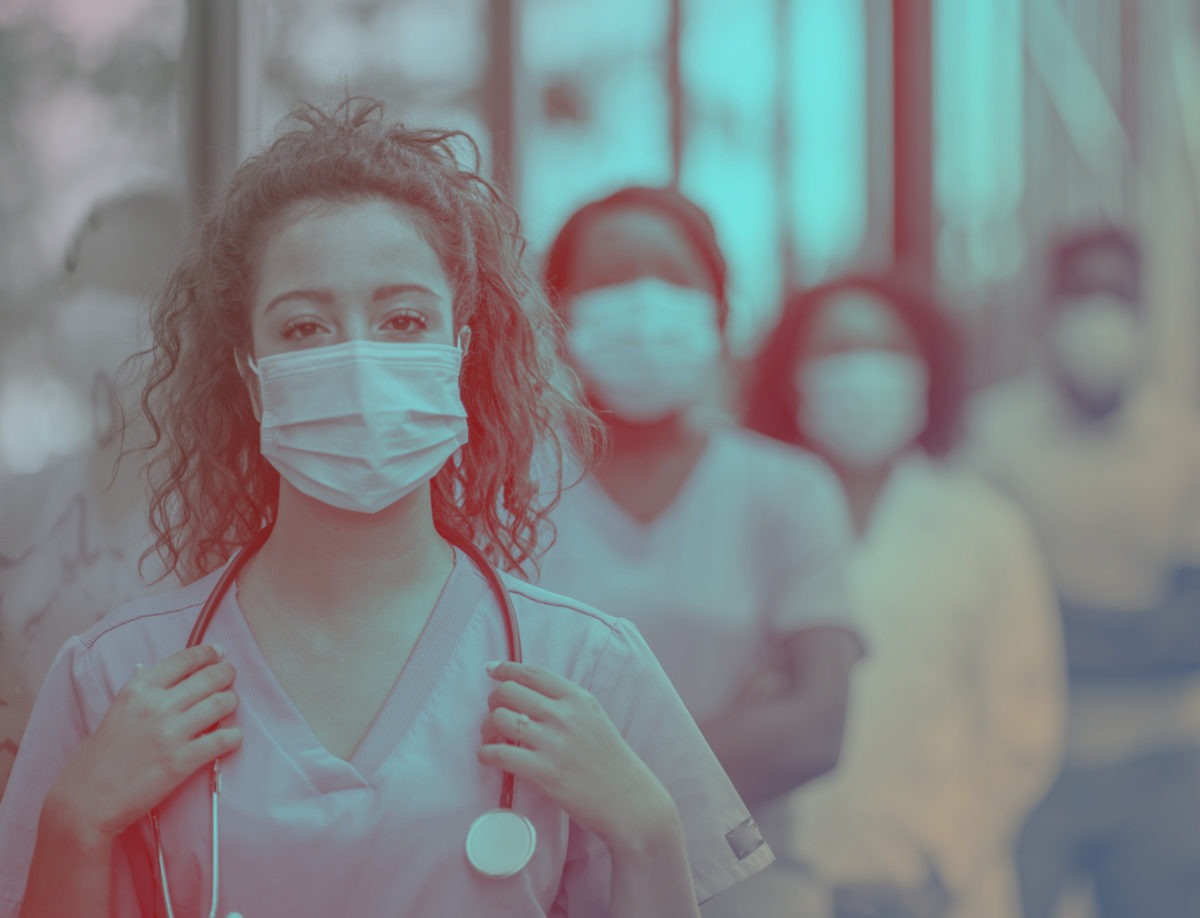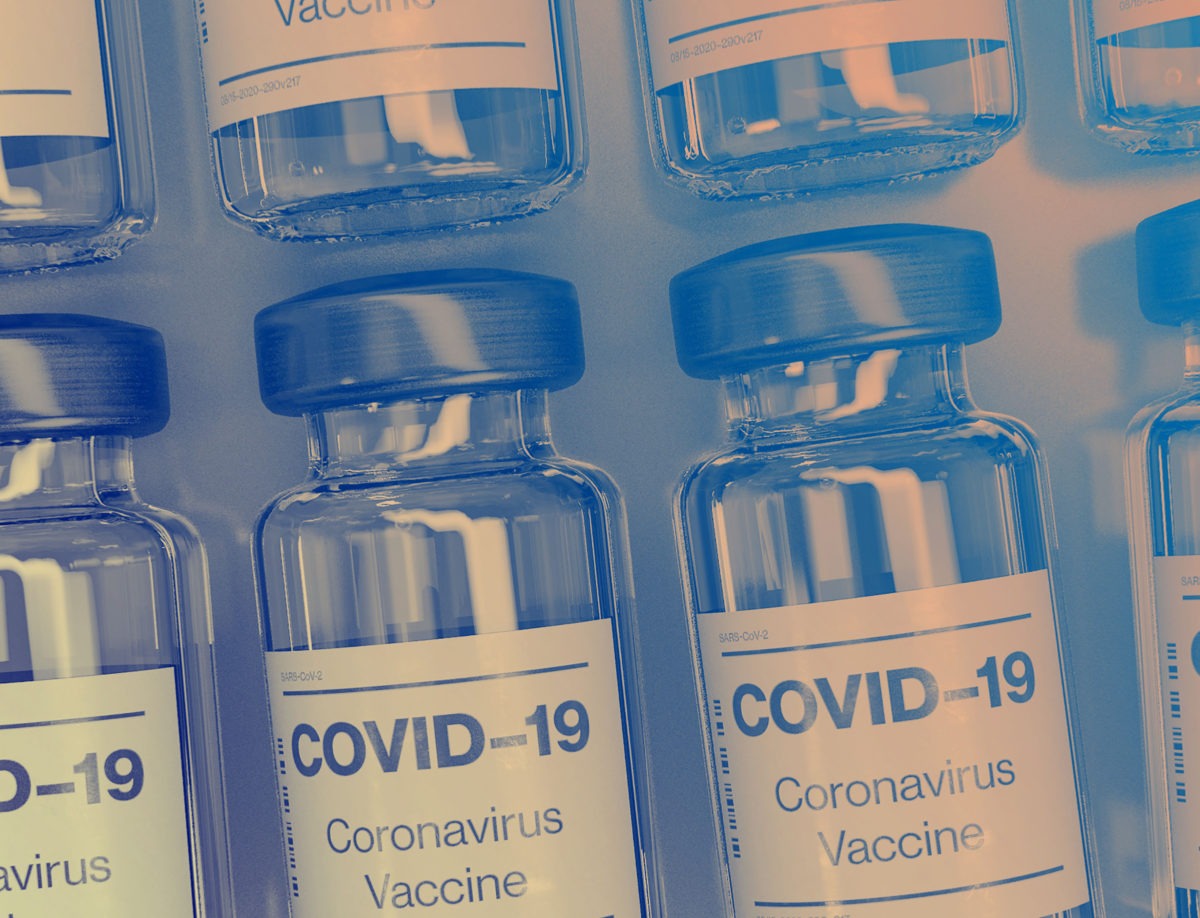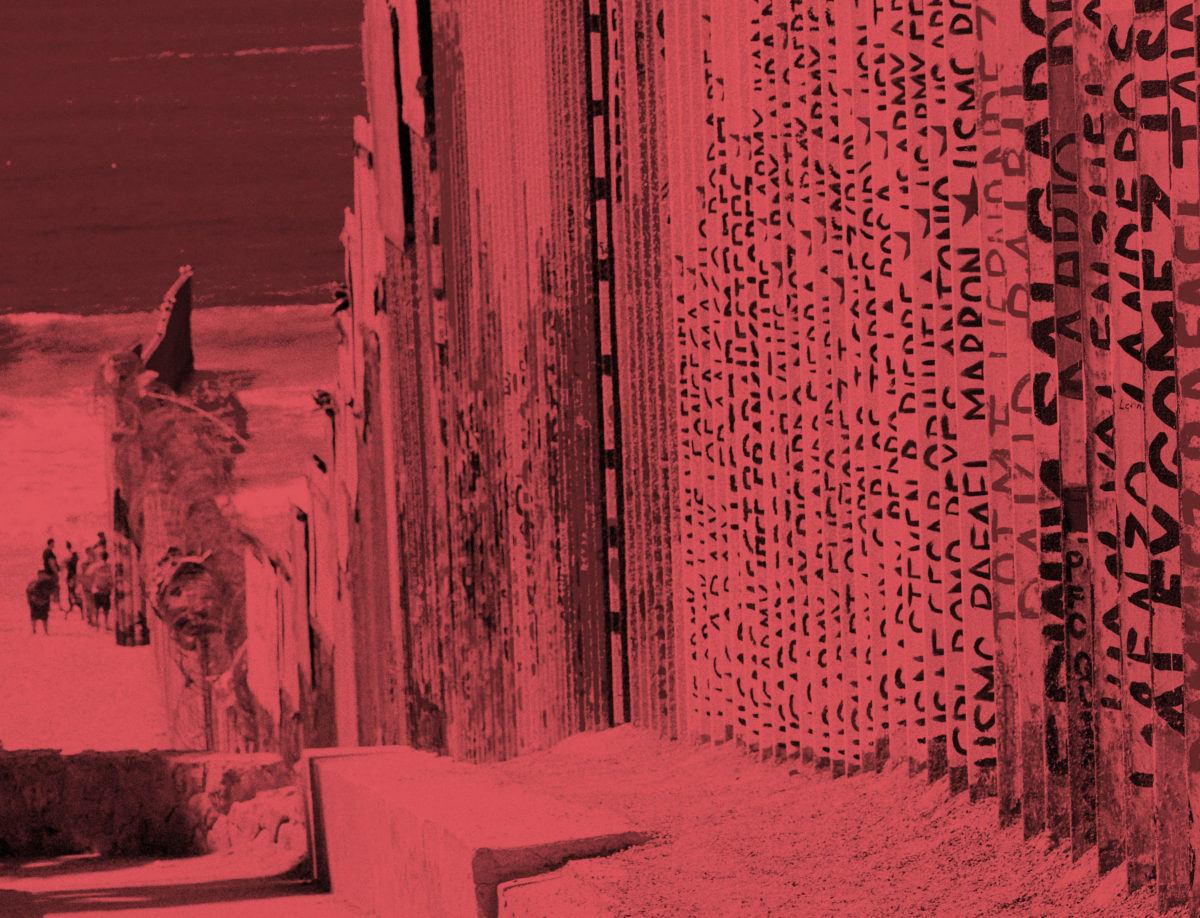
The Other Public Health Crisis: How The DOJ Can Flatten the Overdose Curve
The pandemic has turbo-charged the overdose crisis, and the Biden administration can bend this curve by abandoning ineffective and counterproductive policy.

The pandemic has turbo-charged the overdose crisis, and the Biden administration can bend this curve by abandoning ineffective and counterproductive policy.

We can and should revise the regulatory and policy approaches, in consultation with communities and stakeholders, to achieve equitable solutions.

Congress must act to ensure that the power of digital currency is used in an inclusive system, not to cement Big Tech’s already outsize influence.

Radical change requires developing alternatives to probation that do not steer people into prison.

A permanent Public Health Job Corps would allow the U.S. to take on the drivers of health inequity and build power among workers.

Policymakers must protect tenants from records that can effectively banish people from civil society.

A novel place-based approach to COVID vaccine allocation could reduces inequities, even as states have adopted differing allocation frameworks.

By prioritizing incarcerated people and correctional officers in COVID-19 vaccine plans, we will better be able to stem the virus, protect our most vulnerable, and our community at large.

With soaring unemployment, stagnant wages, and historic income inequality, the transition from living at home to financial independence is often a long and arduous one, and perhaps impossible without a family safety net. That transition is even more difficult for children in foster care.

To make real progress on immigration, the president must address not just four years of bad policy, but the last 40 years.
Executive Summary Amid a significant spike in deaths among individuals experiencing homelessness in San Francisco, including a rise in overdose deaths, expanded harm reduction practices and substance use treatment during the COVID-19 pandemic have shown promising results in reducing death and harm from opioid use. The interventions include providing emergency shelters for higher-risk adults and […]
Introduction Late one night in September 1980, New York City police officers chased Benjamin Quarles to the back of a grocery store. There, officers detained Quarles and frisked him, finding an empty shoulder holster. After securing Quarles with handcuffs, one officer asked him where the gun was. Quarles nodded toward some empty cartons and replied, […]
Executive Summary Asthma rates in the United States are intimately connected with environmental policy choices. Weak regulation or non-compliance with pollution control has resulted in uneven air quality across the country and corresponding elevated health risks. The disease burden has fallen primarily on nonwhite communities, and particularly nonwhite children, who—due to America’s racialized housing geography—tend […]

INTRODUCTION The United States is in the midst of a housing crisis, and the COVID-19 pandemic and resulting economic catastrophe are making it worse. Over 40 million people may soon be at risk of being thrown out of their homes at a time of great uncertainty. While the recent federal eviction moratorium keeps some people […]
Executive Summary This election has put the basic tenets of our democracy at stake. The vote will place unprecedented stresses on our system of electing a president. Whether the system will be able to withstand these pressures is another matter. American history suggests that our system is vulnerable to periodic breakdowns. Ordinarily the risk of […]
Executive Summary The United States currently faces three deepening and converging crises. The first and most obvious is the health crisis produced by COVID-19, which has killed more than 200,000 people nationwide and resulted in acute social isolation for millions of Americans. Second, the state and local lockdowns imposed to stem the virus’ spread have […]
Executive Summary Addressing wage theft is an essential part of providing economic security for working people, and if done correctly with robust enforcement, local wage theft ordinances can provide significant protections. These ordinances are also popular among voters. New polling from Data for Progress and The Justice Collaborative Institute shows overwhelming bipartisan support for local […]
Executive Summary As peaceful protesters throughout the United States challenge the police killings of Black women and men, they are confronted today with fully militarized police forces, equipped with M4 rifles, sniper scopes, camouflage gear and helmets, tanks and mine-resistant ambush-protected (MRAP) vehicles, and grenade launchers from the wars in Iraq and Afghanistan. Heavily weaponized […]
Executive Summary Police-created crime is not a path to public safety. In most cases, undercover police stings target individuals who officers know nothing about, including whether they were already committing the targeted crime. Rather, these stings tend to ensnare the most vulnerable individuals, often by focusing on low-level drug crimes and poverty-induced offenses. Creating crime—in […]
Executive Summary For decades, prosecutors and advocates strove to make the criminal legal system more victim-centered. This resulted in more money being funneled towards prosecutions and policing as well as laws that now require harsher penalties and more regular notifications for victims. But it has also produced, paradoxically, a downgrading of social services, counseling, medical […]
Executive Summary Cities play a vital role in protecting the health and safety of their residents. But they have been increasingly thwarted by their own state governments, thanks to a relatively recent uptick in “preemption,” where a higher level of government uses either executive authority or legislation to limit the authority of a lower level […]
Tax systems have too often worked toturbocharge the inequalities associated with our modern economy.
Executive Summary The coronavirus pandemic has brought the country to the brink of economic collapse. While the CARES Act provided some temporary relief, sustained economic recovery requires a plan to give unemployed workers an opportunity to support themselves and their families with dignity. New Deal-style federal jobs programs can help eliminate working poverty and create […]
Executive Summary Racial disparities in health and wellbeing are well documented. In 2003, the Institute of Medicine issued the landmark report Unequal Treatment: Confronting Racial and Ethnic Disparities in Healthcare, which connected racism in mortgage lending, access to housing, employment, and criminal justice to racial health disparities. This report and the World Health Organization’s 2008 […]
Executive Summary As things stand, many interactions with crisis response systems in the United States result in a trip to jail or an emergency room. Both of these options are costly, inefficient, and often result in the same people coming back again and again. There is a better way: Integrated Service Facilities (ISFs) can provide […]
Executive Summary The notion of “environmental justice” reflects the disproportionately high burden of environmental hazards—such as pollution—borne by low-income communities, communities of color, and indigenous communities, as well as the disproportionately low access of these communities to environmental benefits—such as clean water. This already unequal distribution of environmental costs and benefits has been gradually exacerbated […]
Executive Summary Over the past several months, protests against police violence and the criminalization of communities of color have increased focus and attention on calls to defund the police and limit their political influence. This development has forced elected prosecutors to reckon with their role in a system that has long failed in its mission […]
Executive Summary To reduce police violence and abuses of power, officers’ contacts with the public can be limited by transferring some policing functions to non-police agencies that can better promote individual and societal well-being. One proposal to significantly decrease police encounters without compromising public safety is to remove civil traffic law enforcement from the duties […]
Executive Summary Same-day voter registration—where a voter can both register and vote on Election Day—improves democracy in the United States by making it easier for people to vote. Same-day voter registration promotes greater participation: states with this policy tend to have higher turnout than states with onerous registration deadlines. This reform has a notable, positive […]
Executive Summary In a national poll, we asked voters whether they support comprehensive marijuana reform that would legalize marijuana and begin to address the historic, intergenerational harms wrought by decades of racially disparate enforcement. We specifically asked about the Marijuana Opportunity Reinvestment & Expungement (MORE) Act, legislation that would decriminalize marijuana at the federal level […]
Executive Summary In October of 2018, an arbitrator ordered Florida’s Opa-locka Police Department to rehire Sergeant German Bosque. This was the sixth time that the city had attempted to fire Sergeant Bosque, and the sixth time an arbitrator ordered the city to rehire Bosque on appeal. There were good reasons to fire Bosque. Over the […]
Executive Summary During a pandemic, any greater consolidation of corporations is a risk to health, jobs, and small businesses. Instead of charging forward with more mergers during the coronavirus-created economic crisis, we should impose a moratorium until the Federal Trade Commission can determine that small businesses, workers, and consumers are no longer under the financial […]
Executive Summary The student loan debt crisis is leading to tremendous dispossession of wealth and income from borrowers—and disproportionately from Black and Latinx borrowers, as well as women borrowers of all races, with Black and Latinx women faring the worst. Aggressive student loan collection practices, which may even involve arrest or threat of arrest, are […]
Executive Summary Police use of facial recognition technology has become routine in the United States, posing grave risks to privacy and civil liberties, especially for people of color. Despite its ubiquity, there is no comprehensive regulation of the technology and its use by law enforcement. Thus far, some cities and states have reined in law […]
Executive Summary Congress has the ability to provide comprehensive aid to households in the next stimulus package. At its core, the new legislation must provide recurring, inclusive, and long-term relief for individuals and families. This relief must not end at an arbitrary date by which Congress wishes the coronavirus will magically disappear. It must give […]
Executive Summary COVID-19 has caused intertwined health and economic crises: the virus threatens the health of millions of Americans, and the resulting economic harm is devastating, especially for working people and families. The burden of these crises has not fallen equally. Communities of color, especially Black and Latinx people, have borne the brunt of the […]
Executive Summary The coronavirus pandemic has dramatically and ominously shifted the scale of the eviction crisis in the United States. Short of extensive, multipronged legislative action, estimates suggest that anywhere from 19 to 23 million renters (or 11 million renter households) are at risk of eviction between summer and fall 2020. Congress must take immediate […]
Executive Summary Since Facebook announced Libra, its proposed “global crypto-currency,” a bit over a year ago, central banks and monetary authorities worldwide have accelerated their efforts to develop central bank digital currencies (CBDCs). Sweden and China, for example, were nearly ready to test their own proto-CBDCs even before last summer. Thanks to CBDCs’ promise to […]
Executive Summary The challenges around eviction and housing affordability predate the pandemic, which means the response must also extend well beyond it to protect renters now and from ongoing housing instability going forward. While COVID-19 is pushing tens of millions of people over the eviction cliff, the staggering lack of affordable housing, particularly for the […]
Executive Summary When a police chokehold led to Eric Garner’s death back in 2014, a bystander caught it all on video. Protests across the nation called for fundamental reforms—and for the punishment of Daniel Pantaleo, the NYPD officer who executed the chokehold. Anyone watching the video could see that something was wrong with the officer’s […]